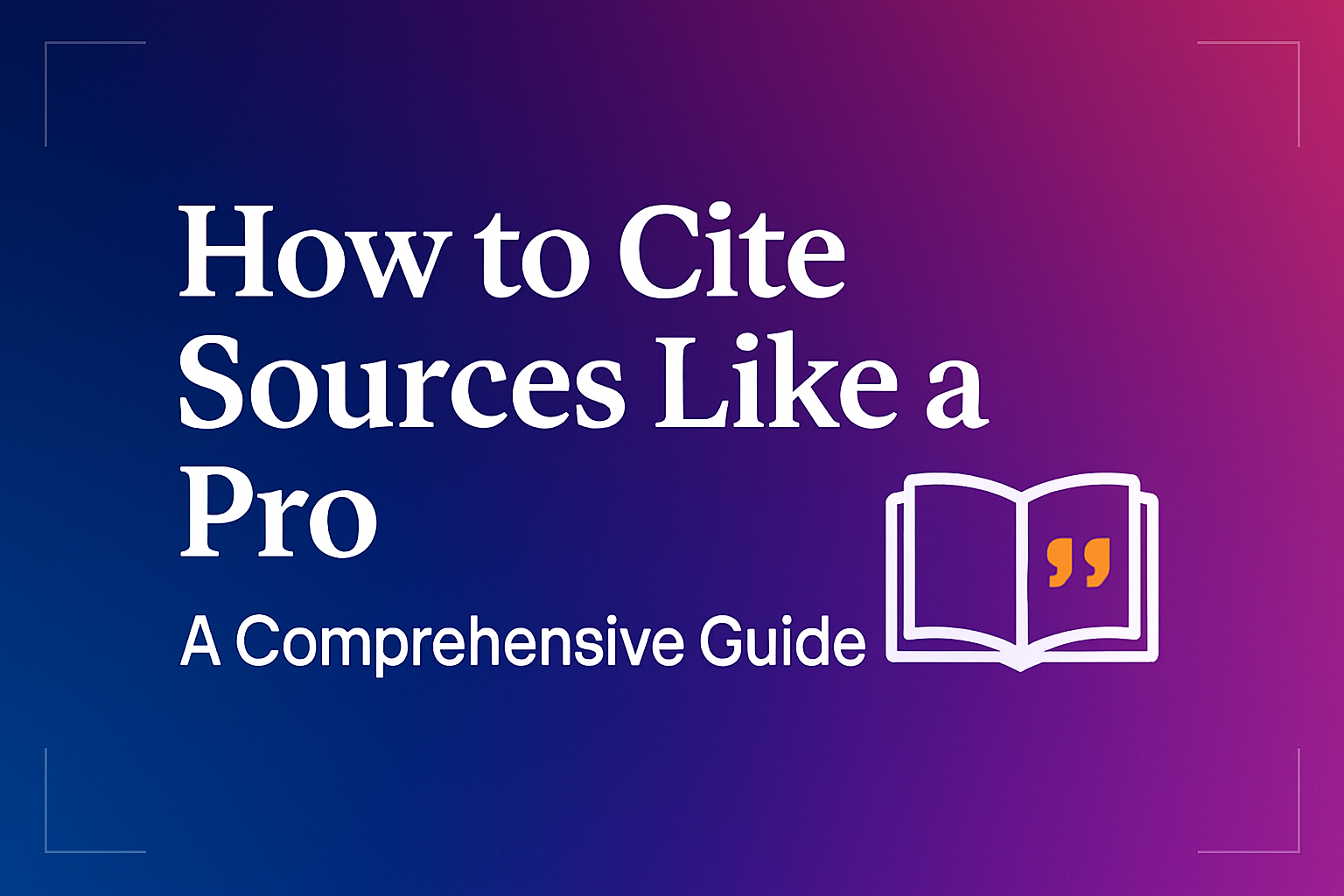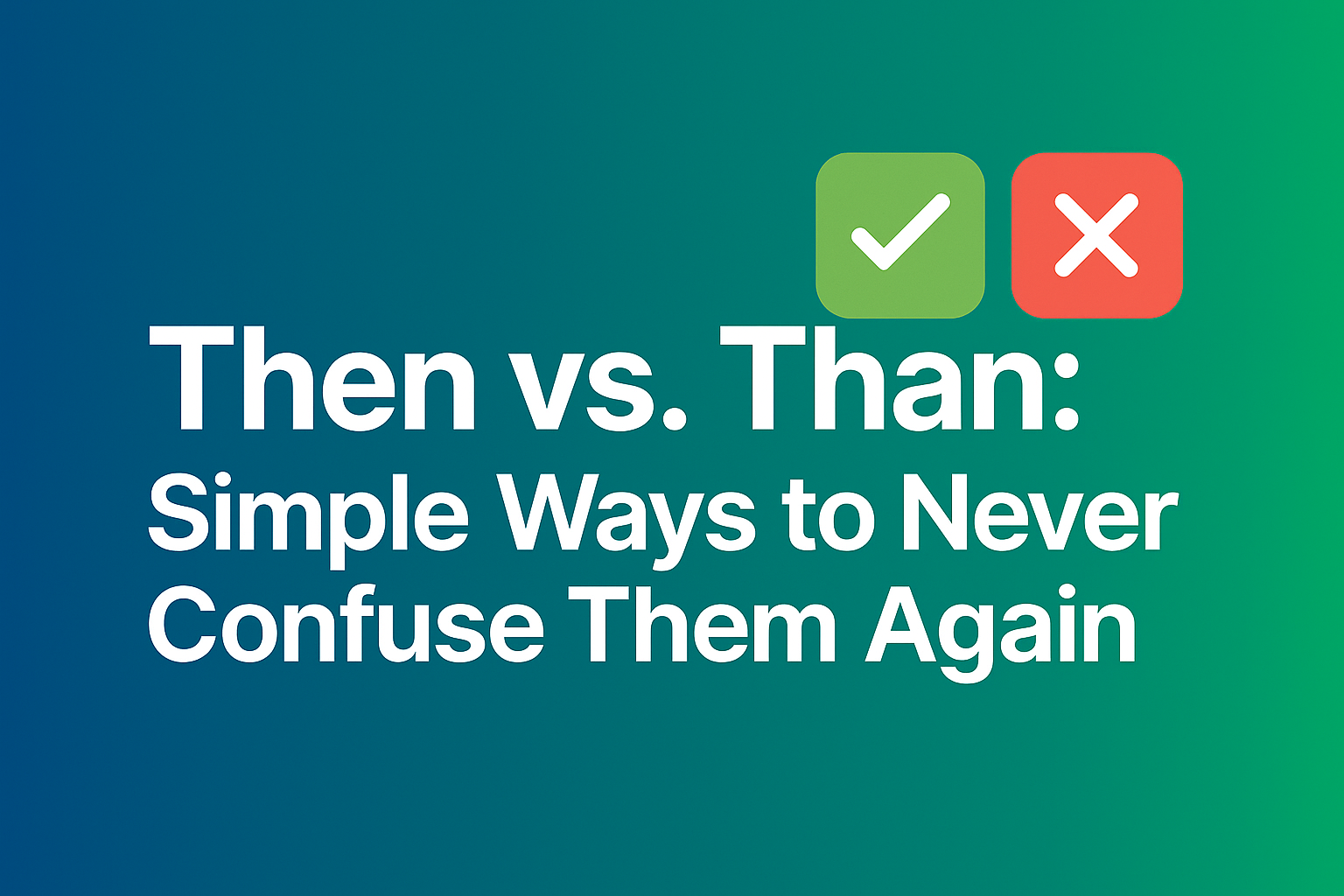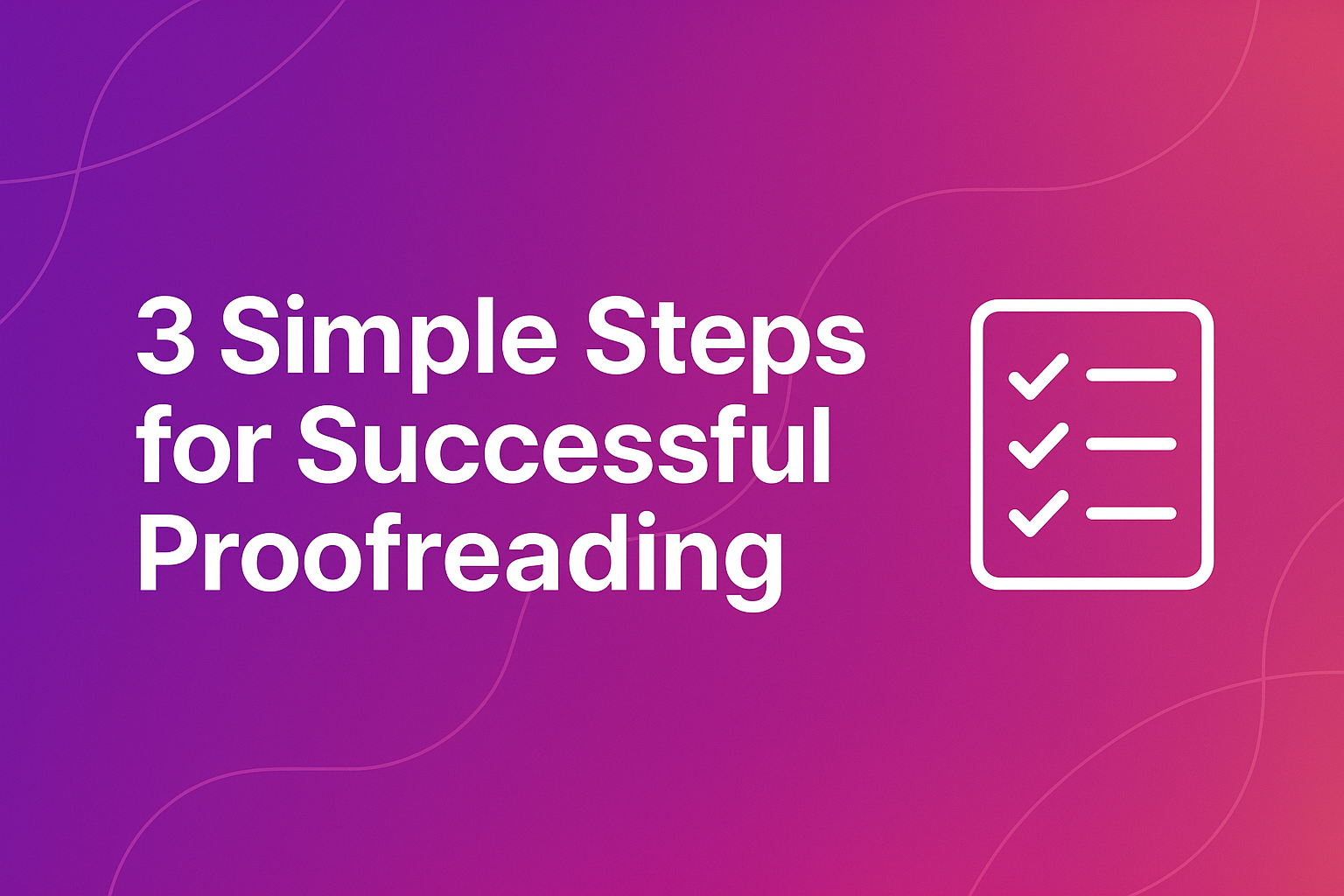
How to Cite Sources Like a Pro: A Comprehensive Guide
Master the art of citing sources with this comprehensive guide covering various citation styles, common mistakes to avoid, and best practices for academic and professional writing.
Read articleCheck your papers for plagiarism with our advanced AI tools


Even experienced writers sometimes pause when choosing between "then" and "than." These two small words look similar, sound similar (especially in some regional accents), and can slip past spellcheckers when used incorrectly. However, they serve completely different grammatical functions and are never interchangeable. This guide will help you understand the distinction and provide you with simple techniques to ensure you never confuse them again.
The fundamental distinction between these two words is straightforward:
If you can remember this basic principle—time vs. comparison—you'll be able to make the correct choice in most situations.
"Then" is primarily an adverb related to time, sequence, or consequence. It answers the question "when?" or indicates "what next?"
Use "then" in the following contexts:
"Then" appears in several common expressions:
"Than" is a conjunction or preposition used in comparisons to show difference. It introduces the second element in a comparison.
Use "than" in the following contexts:
"Than" appears in several common expressions:
To help remember which word to use, try these simple mnemonic devices:
"Then" contains the letter "E," which can remind you of "Events" or "timE"—both related to when something happens.
"Than" contains the letter "A," which can remind you of "Analyzing" or "compAring" things.
"thAn" is for compArisons between A and B "thEn" is for sEquence of events
Despite the clear distinction in meaning, these words are frequently confused. Here are the most common errors and how to correct them:
❌ "She is smarter then me." ✓ "She is smarter than me."
Why it's wrong: This sentence is making a comparison between two people's intelligence, not referencing a sequence or time.
❌ "We'll go to dinner, than we'll see a movie." ✓ "We'll go to dinner, then we'll see a movie."
Why it's wrong: This sentence is describing a sequence of events over time, not making a comparison.
❌ "The book has more then 300 pages." ✓ "The book has more than 300 pages."
Why it's wrong: This is a comparison of quantities (comparing the actual number of pages to 300), not a time reference.
❌ "Other then that, everything was perfect." ✓ "Other than that, everything was perfect."
Why it's wrong: This phrase is making an exception or comparison, not referring to time.
❌ "I'd rather stay home then go out tonight." ✓ "I'd rather stay home than go out tonight."
Why it's wrong: This is expressing a preference between two options (a comparison), not a time sequence.
Part of the confusion between "then" and "than" stems from pronunciation differences:
In many American dialects, "than" is pronounced with a schwa sound /ðən/ that makes it sound very similar to "then" /ðɛn/, especially in fast speech.
In most British English pronunciation, the distinction is usually clearer, with "than" pronounced /ðæn/ and "then" as /ðɛn/.
If English isn't your first language, try exaggerating the pronunciation difference when you speak:
Let's explore how these words are used correctly in various types of writing:
Then (Time/Sequence):
Than (Comparison):
Then (Time/Sequence):
Than (Comparison):
Then (Time/Sequence):
Than (Comparison):
Then (Time/Sequence):
Than (Comparison):
While the time vs. comparison rule covers most uses, there are some special cases worth noting:
This phrase combines both words' concepts (time and comparison):
The phrase indicates that one event happened immediately after another.
Compare these two constructions:
These phrases show the distinct functions clearly:
For those interested in the technical aspects of grammar:
There's ongoing debate about whether to use subjective or objective pronouns after "than":
Both forms are widely used, though traditional grammar prescribes the subjective form, especially in formal writing.
When proofreading your writing for then/than errors:
Most spell checkers won't catch then/than errors because both are correctly spelled words. This makes these errors particularly sneaky.
Modern grammar checkers like Grammarly, ProWritingAid, or Microsoft Editor can catch many then/than errors, but they're not infallible, especially in complex sentences.
Several browser extensions specifically target commonly confused words like then/than, their/there/they're, and your/you're.
With practice, distinguishing between "then" and "than" becomes second nature. Remember:
The simplest check is to ask yourself: "Am I comparing things or describing when something happens?" This question will guide you to the correct choice almost every time.
By mastering this common distinction, you'll elevate your writing and communication, ensuring your meaning is clear and your grammar is precise. Just remember: first learn the difference, than apply it, and then your writing will improve!

Master the art of citing sources with this comprehensive guide covering various citation styles, common mistakes to avoid, and best practices for academic and professional writing.
Read article
Explore how artificial intelligence is transforming language correction, writing assistance, and the broader landscape of human communication.
Read article
Master the art of proofreading with these three essential steps that will help you catch errors and polish your text to perfection.
Read article